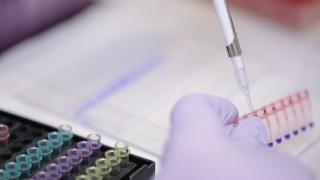City of Hope, a world-class biomedical research institution and comprehensive cancer center, is launching a biomedical innovation and commercialization (BIC) program designed to teach City of Hope faculty about how BIC efforts drive patient benefit and fuel ongoing scientific discovery.
The inaugural BIC course is the first of its kind at City of Hope and the surrounding L.A. area. In collaboration with Keck Graduate Institute, the workshop is tailored to City of Hope faculty members interested in commercialization. It will offer a unique opportunity to access an unparalleled set of experts from within City of Hope and other biomedical institutions.
City of Hope blends the best of academics, medical care, and biotech environment — a concept the institution calls the “R&D hybrid" model. This model brings additional resources, business discipline and the insights of accomplished industry experts to support the development of the most promising of discoveries of City of Hope scientists. The ultimate goal is speeding discoveries to patients by fast-tracking the commercialization of potentially life-changing new therapies.
The biomedical innovation and commercialization program is led by Ildiko Csiki, M.D., Ph.D., chief commercial R&D officer at City of Hope, and Harlan Levine, M.D., president of strategy and business ventures at City of Hope.
“City of Hope has an unparalleled track record in developing therapies that benefit humanity,” Levine noted. “And the increasing competitiveness of the biotech industry necessitates that we approach drug development from a commercial mindset from the very beginning.”
"This program in an important step to enable our faculty to engage in industry-like research efforts that meet the demands of the evolving markets, and it provides opportunities for significant collaboration across the enterprise,” said Csiki.
This unique program places City of Hope at the forefront of the institutions committed to innovation and entrepreneurship for the benefit of its patients.
This three-day virtual training program, to be held February 18 to 20, 2021 will:
- Build familiarity with the bioscience commercialization processes.
- Develop opportunities for experts in research translation and commercialization to collaborate within City of Hope.
- Offer hands-on experience to assess the commercial viability of a potentially lifesaving discovery made at City of Hope.
The BIC program takes an active learning approach where participants will evaluate case studies of actual biomedical commercialization processes and listen to short lectures on topics covering bioscience business and commercialization relevant to City of Hope’s faculty. Topics of the case studies include partnerships, intellectual property, and patents, how to value technologies, and market forecasting. Going along with the program’s interactive aspect, small teams of faculty participants will work together to develop a preliminary commercialization analysis of a technology emerging from their lab and on the last day of the program, each team will deliver a short presentation on their commercialization opportunity analysis. Additionally, there will also be panels focusing on collaboration and entrepreneurship featuring internal and external experts interspersed between the presentations to allow faculty to hear directly from these experts that have been successfully involved in parts of the innovation and commercialization process.
While academic research is typically funded by government associations such as the National Institutes of Health, partnerships and collaborations with private companies provide an important source of revenue when it comes to the drug discovery and development process. The program is also designed to help those immersed in the world of research feel more at ease when navigating these partnerships.
In the future, City of Hope will seek to develop additional programs that build off this inaugural program and will provide additional and more in-depth training in the science of commercialization and entrepreneurship.
